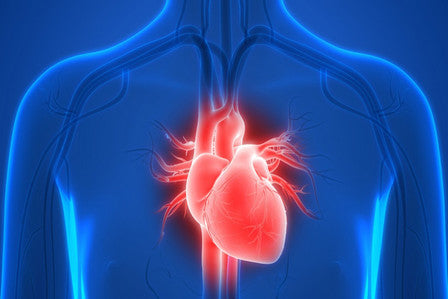Join us for a tutorial and get to the heart of the matter

The heart is responsible for circulating blood throughout the body. It is about the size of your clenched fist and sits in the chest cavity between your two lungs. The walls of the heart are made of really strong muscles that contract and relax to pump blood around the body.
The blood carries oxygen and all the food, vitamins and minerals that your body needs to move, think, grow and repair itself. At the same time, the blood picks up waste products that your body doesn’t need and takes it to those parts of your body that get rid of waste (your lung, kidney and liver).
The number of times your heart contracts and relax per minute refer as heart rate. On average, most people have a heart rate of around 72 beats per minute at rest. Each heart beat is triggered by an electrical pacemaker, a group of cells in the heart that have the ability to generate electrical activity. They cause electrical impulses to spread over the heart and make it contract.



